Gough Whitlam has been honoured as a “giant” of public life whose sweeping social reforms of the 1970s transformed the nation “utterly and permanently”.
Leaders from all sides of politics offered their condolences, and in some cases emotional tributes, after the Whitlam family confirmed that the 21st prime minister of Australia had died at the age of 98.
The Australian parliament suspended its normal business on Tuesday as a mark of respect for the Labor luminary, who was prime minister from 1972 to 1975. MPs spoke in support of a condolence motion.
The Liberal prime minister, Tony Abbott, described Whitlam as a “giant of his time” who inspired a legion of young people within the Labor party to get involved in public life.
“He was only prime minister for three years – three tumultuous years – but those years changed our nation, and one way or another set the tone for so much that has followed. Whether you were for him or against him, it was his vision that drove our politics then and which still echoes through our public life four decades on,” Abbott told parliament.
“He may not have been our greatest prime minister, but he was certainly one of the greatest personalities that our country has ever produced.”
Abbott nominated Whitlam’s decision to establish diplomatic relations with China, and be the first Australian prime minister to visit that country, as “an enduring legacy”. He said Whitlam also “recognised the journey that our country needed to take with Indigenous Australians”.
The opposition leader, Bill Shorten, led the tributes at a sombre Labor caucus meeting on Tuesday morning, telling his colleagues: “I have some very sad news for all of you, and I think very sad news for all Australians. A giant of our movement, a great leader of our nation Edward Gough Whitlam has left us … There will be more tears shed for Gough Whitlam today than perhaps any other leader in Australian history.”
Shorten said Whitlam had transformed the nation utterly and permanently, changing the lives of a generation and reimagining Australia “as a prosperous, modern, multicultural nation where opportunity belonged to everyone”.
Whitlam, the only Australian prime minister ever dismissed by the governor general, had reason “to carry an anvil of hatred” over the sacking in 1975 “but he did not”.
Shorten said the Whitlam government should be measured not in years, but in achievements: significant health and education reforms, advances in land rights for Indigenous Australians, recognising the nation’s place in Asia, bringing troops home from the Vietnam war, ending conscription, abolishing the death penalty, introducing the Racial Discrimination Act, no-fault divorce, and leading debate on the development of suburbs and cities.
Shorten said Whitlam never lacked the courage for a fight and was the “greatest reformer in the history of the Labor party” – making it “relevant to the modern, multicultural, fair and reconciled country of his grand vision”.
Adapting Whitlam’s resonant 1972 election slogan, “It’s time”, Shorten said: “Because of him, because of his life and legacy, it’s always time. It’s always time for a more generous and inclusive Australia. It’s always time to help our fellow Australians rise higher than their current circumstance. It’s always time for courage in leadership and to create and seize opportunity. It is always time.”
The veteran Labor senator John Faulkner, delivering what he described as his most difficult speech to caucus, said he would never forget the excitement and enthusiasm of the 1972 election when Whitlam swept to power.
Faulkner said Whitlam was ambitious in pursuing party reform but also in modernising Australia as “a confident and progressive nation”. Like many of the political tributaries on Tuesday, Faulkner also praised the late Margaret Whitlam, who died in 2012, saying she shared her husband’s vision and was “a towering figure in her own right”.
The election of Whitlam’s government on 2 December 1972 ended 23 years of conservative rule and its dismissal by the governor general, Sir John Kerr, on 11 November 1975 remains one of the most controversial events in Australian political history.
Whitlam won a double dissolution election in 1974, with a reduced majority. But from October to November 1975 the parliament was deadlocked, with the opposition using its numbers in the Senate to refuse to pass the budget. When Whitlam visited Kerr to call for a half Senate election, Kerr instead withdrew his commission as prime minister and replaced him with the Liberal leader, Malcolm Fraser.
Whitlam lost the election to Fraser after the national upheaval of the dismissal. He stood down as Labor leader and retired from politics in 1978.
Fraser said on Tuesday that Whitlam was a “most formidable opponent in political terms” but was someone he later considered to be a friend. He praised Whitlam for his sense of Australia’s identity and purpose as a nation, “not as an appendage to other nations”.
Asked about the events of 1975, Fraser said: “It was a fierce political battle. There were tense times, difficult times … I might regret the larger political argument and the way that did become divisive in Australia. I am not going to talk about regretting particular actions or whatever because I don’t think this is the time to do this. I think it is a time to remember the things that Gough contributed to Australia.”
The Australian Council of Trade Unions said Whitlam had “paved the way for a new era of modern progressive policies” that had an impact on millions of lives.
The former Labor prime minister Paul Keating said Whitlam had “snapped Australia out of the Menzian torpor” and “changed the way Australia thought about itself and gave the country a new destiny”.
Another former Labor prime minister, Julia Gillard, wrote a tribute saying Whitlam was “alive in our universities and the many lives he changed by giving free access to university education, my life included in that count”.
The Palmer United party leader, Clive Palmer, said he too was a beneficiary of free university.
The deputy Labor leader, Tanya Plibersek, said universal healthcare, under the Medibank and later Medicare, had become a fundamental part of Australia’s character.
The Greens leader, Christine Milne, said Whitlam “was prime minister for only three years but he swept all before him” and “made us a progressive nation and put us on the global map”.
The Labor frontbencher Anthony Albanese said Whitlam’s impact was so great that Australia’s political history could be divided into pre-Whitlam and post-Whitlam eras.
Whitlam’s family intends to hold a private cremation but there will also be a public memorial service. The family said in a statement on Tuesday that Whitlam was “a loving and generous father” and “a source of inspiration to us and our families and for millions of Australians”.
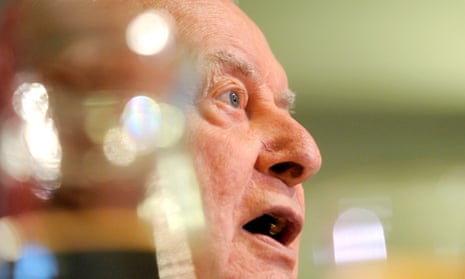

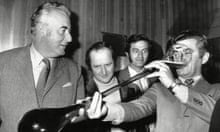

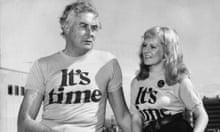
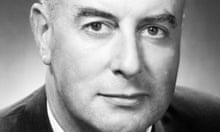
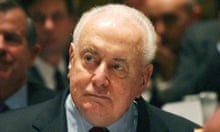
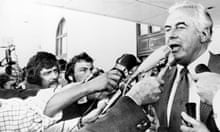
Comments (…)
Sign in or create your Guardian account to join the discussion